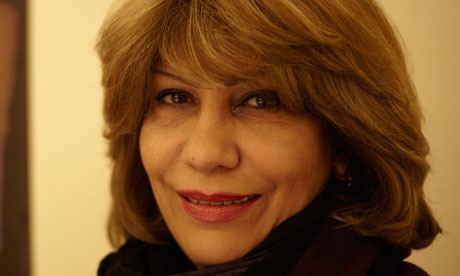Why the war has taken its toll on Iraqi women
Continuing sectarian violence and a struggling economy in Iraq have put extra pressure on women – with 400,000 widows in Baghdad alone and 24% of women illiterate
Rounaq was 14 when her father took her out of school and married her to a man from the same tribe. By the time she was 17, her husband had left her with a three-year-old daughter, and no education or prospect of supporting herself or her child. As the marriage wasn't registered because she was under-age, her daughter was left without the necessary paperwork for an education.
Rounaq's situation, according to Zainab Shakir, the country director forWomen for Women International, Iraq, typifies the problems women face a year after the war officially ended. With government institutions demolished in the wake of the US invasion of 2003, people have turned to "tribal and religious structures and communities" for help. And continuing sectarian violence and a struggling economy have hit women hardest.
The Iraqi women's affairs ministry, say there are more than 1 millionwidows in Iraq, and 400,000 in Baghdad alone, and the UN puts the figures even higher. "Many of these women have never worked, and don't have any education, but may have three or four kids. Then, in their late 20s they find the person who supported them isn't there. In-laws or their parents might take them in, but not everyone can afford this."
The Ministry of Women has some housing, allocated on a lottery basis, for widows, and some get government money, but not everyone can be helped. And, says Shakir, with only one female politician – the minister for women's affairs – in government, women's issues "are not on their list of priorities".
While the US invasion has had the biggest impact, Shakir says the decade-long war and the 12 years of sanctions that led to the US invasion, took their toll on Iraqi women. "Many families stopped sending their children to schools – frightened they would face violence or rape. This was especially true in rural areas and the suburbs of big cities." Some families prioritised their son's schooling, she says.
As a result, girls were married off younger in religious ceremonies – below the legal age of 18 – and often by 14 or 15. It's a far cry from her upbringing in the 70s and 80s, says Shakir, when Iraq was known in the Middle East for its excellent education system and the law that all children must complete their primary education. "Today, 24% of women in Iraq are illiterate and this increases to 50% for those in rural areas between the ages of 15 and 24," says Shakir.
The violence across the country has been mirrored in homes. "The stress falls on the most vulnerable – in this case the women. According to the UN, one in five Iraqi women have experienced physical or psychological abuse – and some suggest the numbers are even higher." Yet, Shakir is positive about Iraq's future.
For Rounaq, life is already better. She has completed one of Women for Women's year-long training programmes which offer life, business and vocational skills. As Shakir explains: "She graduated in tailoring and started her own business, and we connected her to Women for Justice, where volunteer lawyers have taken up her case."

No comments:
Post a Comment